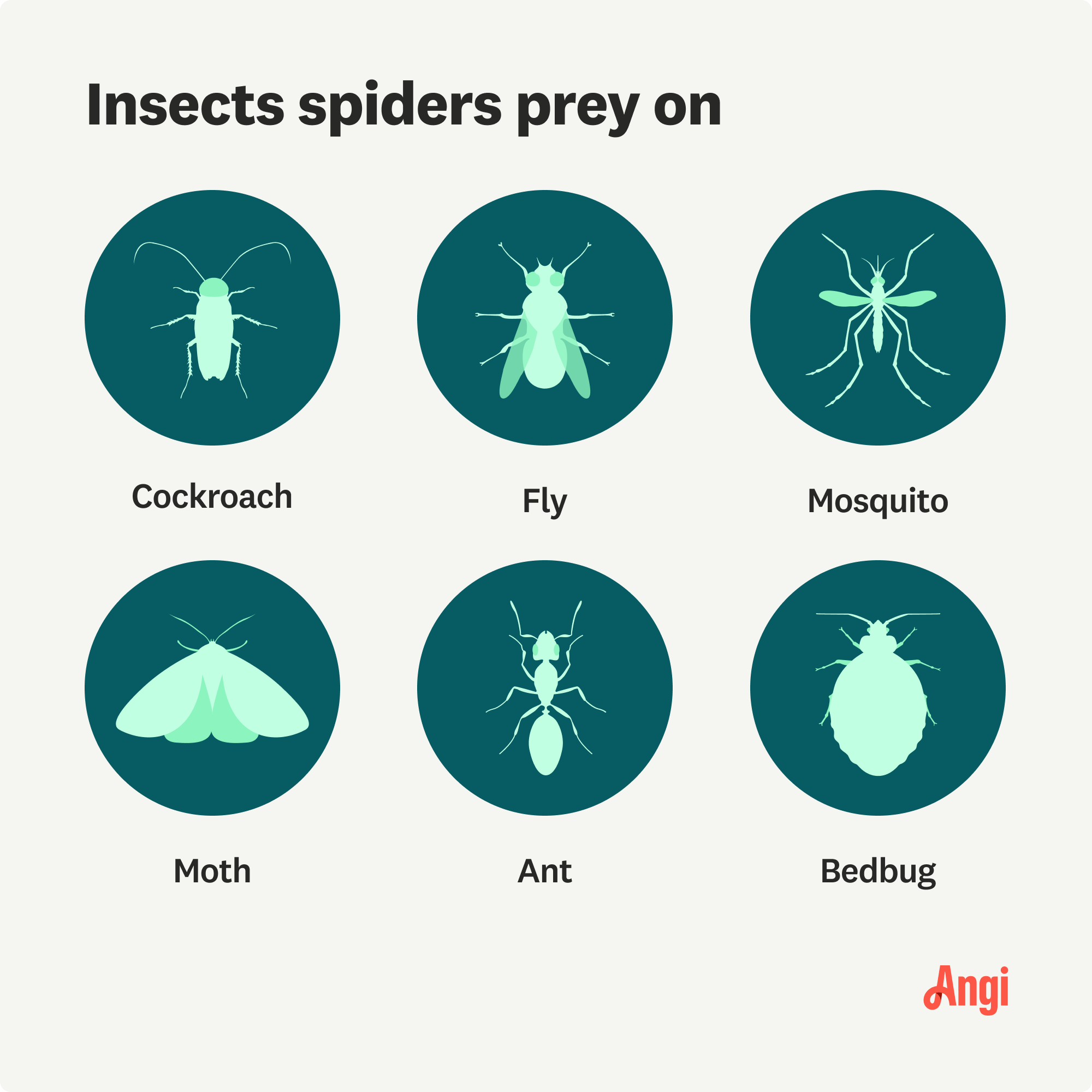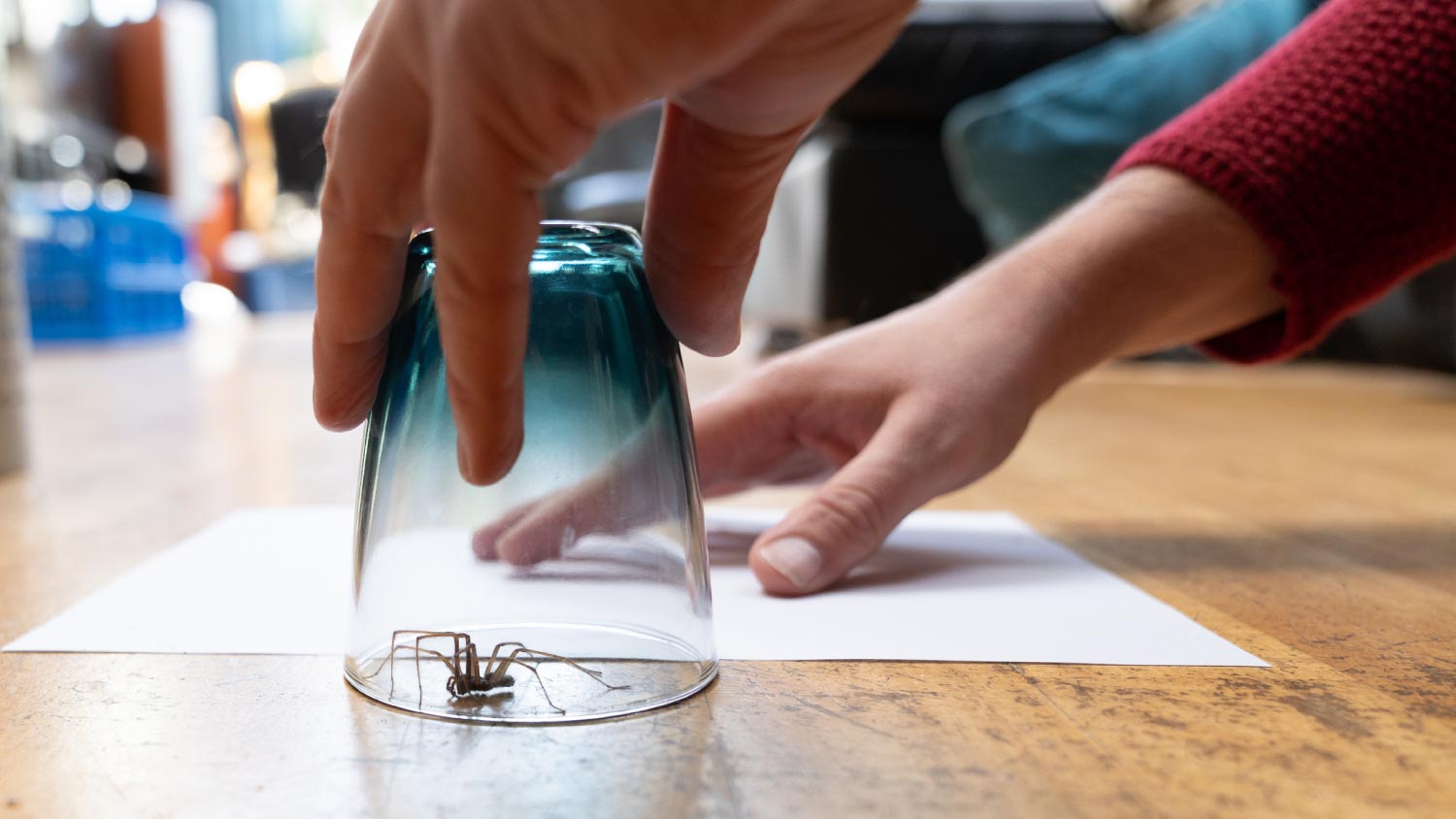
Whether you have bugs, bats, or rodents invading your home, you’ll want to contact an exterminator quickly. Find out how much pest control costs in Columbus, OH.
The itsy bitsy spider can be a surprisingly helpful friend


Spiders provide many valuable services, including killing other pests.
Most spiders are harmless, aside from giving a non-poisonous bite.
Capture it in a jar and release it outside instead of killing it.
Contact an exterminator to verify potentially dangerous species.
Sure, spiders may be creepy. They hide in dark places, scurry about on eight legs, and muck up your basement with webbing. But beyond that, these eight-eyed beasties are relatively harmless and even helpful in certain scenarios. In other words, before crushing them with a rolled-up newspaper, consider how spiders serve humankind and learn better ways to handle them.

Has spring moisture brought pests to your home? Consider spiders your natural exterminator. These predators feast on household insects like cockroaches, flies, mosquitos, moths, ants, and even dreaded bedbugs. As a matter of fact, seeing a spider in a web is a sure indicator it’s well-fed, as arachnids only post up in highly trafficked parts of the home.
Also, they eat a whole lot of bugs. According to a study published in The Science of Nature, spiders eat a whopping 800 tons of pests annually. Hungry humans only eat half that amount of meat and fish each year.

Silk is one of the most fashionable and comfortable fabrics around, so we can thank spiders for that. Despite being lightweight and spongy, spider silk is incredibly strong, with some manufacturers using it to make bulletproof vests and other protective body gear.
Also, health care professionals have a long history of creating antivenom, anticoagulant, and antibacterial substances with spiderwebs and spider venom. Modern medical researchers are even developing treatments that use venom to combat chronic pain, brain cancer, pancreatitis, and abnormal heart rhythms.
A common misconception regarding spiders is that bites lead to serious health consequences, but that’s only true for a small handful of household species in the U.S. (namely black widows and brown recluses). The vast majority of spiders pose no serious risk to humans or pets besides an annoying (though non-poisonous) bite. According to the Centers for Disease Control and Prevention, spiders aren’t aggressive, and most bites occur because they're trapped or accidentally touched.
So, spiders are valuable members of the planet's ecosystem, in addition to pruning your home's insect population. Still, that doesn't mean you should open up your home to every spider that crawls through a crack in the insulation. Here are some ways to handle Charlotte and her friends without killing them.

The fastest and easiest way to remove spiders from your home is via catch and release. Lure the spider onto a piece of paper and trap it in a heavy jar or another container. Holding the paper from the bottom, bring the spider outside—far from your home.
There are also contraptions you can purchase for safely catching and releasing spiders.
Manual grabbers: They boast long handles to reach ceiling-based spiders and those in other out-of-way locations. Pull the trigger to capture, release to trap, and pull the trigger again to release once outside.
Insect vacuums: These gentle vacuums suck up bugs without harming them, allowing for a safe release outside.
Plastic traps: Handheld plastic traps feature a handle and a clear plastic box to scoop up and house the spider. Once contained, bring it outside, open up the box door, and let that spider loose.

If manually catching and releasing spiders gives you the heebie-jeebies, try diverting them from your home using essential oils and other aromatherapies. Spiders detest certain smells, so try these out.
Cinnamon oil: Dilute 15 or 20 drops of this essential oil in a spray bottle, filling the rest with water. Mist wherever you see spiders. An essential oil diffuser also works here.
Cinnamon sticks: Seeing a theme? Spiders hate cinnamon. Place cinnamon sticks in populated areas or even light cinnamon-scented candles.
Vinegar: Spiders also avoid vinegar since the pungent odor drives them away. Fill a spray bottle with half water and half vinegar, and spritz where you see arachnids.
Citrus: Rub orange or lemon peels under entrances or cracks to the outside, like windowsills and underneath doors.

The primary reason spiders hang out in your home is ready access to food. Divert them to another location by removing their food source, like throwing away overripe bananas and keeping your house clean, decluttered, and the sink free from dirty dishes. Watch for crumbs and stagnant pools of water.
As previously mentioned, household spiders are rarely poisonous, but exceptions exist. Black widow spiders and brown recluse spiders are the two prevalent species worth worrying about. Black widows live primarily in the South and West, while brown recluses thrive just about everywhere.
You can remove black widows on your own using the jar trick, but make sure to cover your arms and hands beforehand. Call an entomologist for identification or a local spider control professional for brown recluse spiders, which travel in swarms.
Kate Fann contributed to this article.
From average costs to expert advice, get all the answers you need to get your job done.

Whether you have bugs, bats, or rodents invading your home, you’ll want to contact an exterminator quickly. Find out how much pest control costs in Columbus, OH.

Moth infestations can cause damage to items in your home. Learn how much moth extermination costs and ways to save in this informative guide.

Snake removal cost comes down to the type and number of snakes you’re dealing with and where they’re located inside your home. This guide breaks it down.

Wondering how to kill stink bugs—and keep them away, for good? Read on for a DIY guide on how to get rid of stink bugs.

Rodents can wreak havoc on your house if they build a nest under the porch. Learn how to get rid of rodents under the house and keep them from coming back.

Is it a common house spider or a brown recluse? Learn how to identify a brown recluse spider so you know how to handle it.